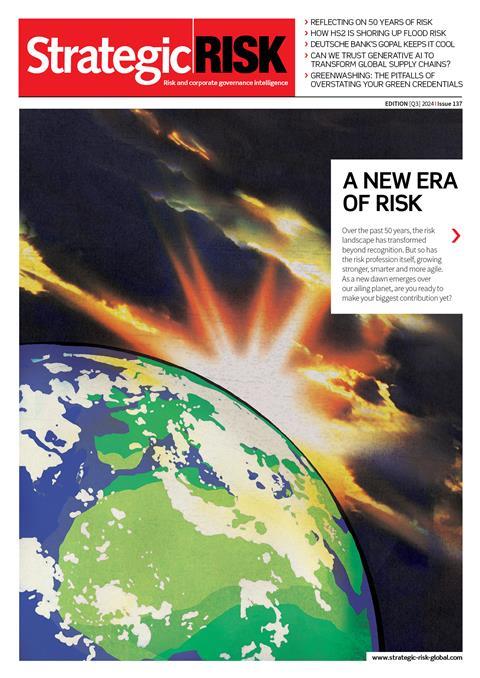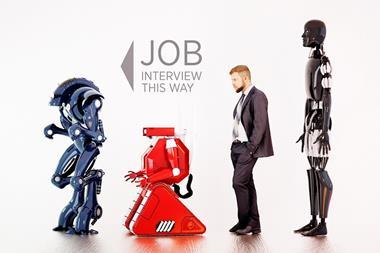When, in 2001, the UN launched a new effort on its Global Business Compact, Secretary General Kofi Annan said, "You in this hall may take for granted that globalisation can and will work for all the world's people. But it is a much tougher sell out there". He pointed out the disparities in treatment between wealthy and poor peoples and continued, "If we cannot make globalisation work for all, in the end it will work for none". He suggested that the fragility of globalisation is a direct challenge to the self interest of the corporate sector. More and more companies are learning that, as markets have gone global, so too must the concept and practice of corporate social responsibility.
In the rush to globalisation, our mutual interconnectedness has grown rapidly, and fragility is now a frightening concept. Fragility is the theory that catastrophic global consequences can arise from small causes: a few bad individuals, an unpredictable software glitch, a local misunderstanding, or a computer virus. We know that economies can be ruined by an increase in small investors making automated investment decisions; that one unreported incident of cattle virus can affect the livelihood of thousands; and that the events of one single day can change the priorities and actions of the wealthiest nation and the perceptions of the world.
Whatever area, sector, service or discipline is examined, the patterns are consistent. As complexity and interconnectivity increase, so does the trend towards fragility.
So far, we seem to have escaped. September 11 2001did not have the repercussions on the economy that were feared; foot and mouth disease did not cripple the UK economy and, while the 'I Love You' virus had global impact, its consequences were contained. From this, we can derive pointers for the way forward.
The questions we ask of the world, our infrastructure, social networks, economics and politics should be applied to any organisation. Are core systems too rigid or too flexible? Is the complexity of the global enterprise fragile because a small glitch could collapse the whole system, or is it flexible? Will we be undermined by complacency or anxiety? How can balance be achieved?
Biodiversity in the Galapagos demonstrates that, if one species is eliminated, another will colonise its niche. Nature is not fragile. Maybe its 'fuzziness' ensures its resilience; maybe there is sufficient duplication to ensure its continuity, at least until man starts replacing parts of it with fragile human constructions. How can we mimic nature's flexibility in a modern, lean enterprise?
Layers of legacy coding, duplicated processes, operations and protocols may slow an organisation almost to death, and increase running costs unacceptably. Or, they may provide alternative contingencies for vital processes and value chains, to such an extent that resilience increases. The many disciplines of risk management can provide management with some of the decision support information required to find the balance. These include enterprise-wide, total and economic risk management, continuity and disaster plans for key systems, and local or organisation-wide back-up for larger threats. But even such planning may prove insufficient in the new world of globalised complexity.
Technology and relationships
IT, communications and associated technologies are fragile. We have based them on an algebraic approach, expecting that a definitive answer can be reached with application. Even programming is not this simple: we have introduced layer upon layer of complexity, enhancing, ring-fencing and patching what is necessary to make sure that our needs are completely satisfied. We are nearly at the point where our computers are so inter-reliant that it will be impossible to fix them or take them off-line because of potential local impact and global consequences. Complexity increases because we are unlikely to have direct control or even knowledge of much of this global network. Examples include STP, outsourced provision of data warehousing, or the processing of international financial transactions. Jaron Lanier, lead scientist of the American Universities' National Tele-Immersion Initiative, hopes that we will be able to build machines of truly predictable behaviour, singly and as network components, in the next 10 to 20 years. If we fail, the consequent fragility would be unimaginable.
Contractual associations are fragile. A supply or service level agreement is built to maintain and uphold mutual obligations within certain parameters. Clarity increases the specificity of the parameters and therefore the inflexibility or fragility of the relationship. But ambiguous legal clauses are ineffective, leading to more risk and less resilience in the relationship.
Good businesses have relationships founded on mutual respect or trust, usually due to the flexibility of one or two individuals. If these people change roles, increased fragility can result from the 'blind' pursuit of contract details. Such actions are likely to fail, unless those involved understand the underlying sentiment, or adopt a level of pragmatism. For example, Dr David Hancock of Halcrow Group Limited, sets the environment to develop a mutually beneficial and enduring relationship based on principles and general responsibilities, and then maintains and builds on this relationship. He builds resilience into the contract by preventing the establishment of entrenched positions without room for manoeuvre because, he says "life isn't like that".
Organisational issues
In our new, fragile and complex world, people have more access to increasing quantities of information. Not only must they deal with their own lives in greater isolation than ever before, but they are constantly bombarded with examples of how others live, inviting comparison and instilling or increasing that sense of isolation. Stakeholders the world over now ask themselves questions that previously would not have seemed relevant, such as, 'Should I be working for this company?', 'Am I happy?', 'Am I doing OK in my job/career/social life?', 'Do I want a career?'. Uncertainty is exacerbated by the increasing pace of change, peer pressure, and the media, and leads to a new style of behaviour; often an unconscious 'opting out'.
Any 'new-world' organisation should try to reduce internal fragility by providing a framework within which its employees feel secure, and in the context of which they are comfortable with changes to their work and environment. A framework implemented insensitively may increase the rigidity of the organisation, inviting further fragility. Alternative ways could therefore be sought to increase the levels of trust in organisations and institutions.
In a series of lectures on trust, Professor Onora O'Neil of Cambridge University and chair of the Nuffield Foundation discussed her belief that our conceptions of accountability are process-mad. She puts forward the idea that too much 'transparency' and too many formal processes may have the opposite effect to that intended. If they are constrained by too-rigid frameworks, individuals become disempowered and feel less responsible or less able to manage the impact and consequences of their actions. However, finding an organisational structure that empowers individuals, demonstrates due diligence and also satisfies auditors and regulators is one of the more difficult challenges for today's senior management.
Implementing such a framework in a time of major organisational change and global competition increases the complexity and the challenge itself. Whether organisational fragility follows depends largely on the strategies and actions of the same decision makers. This creates another potential source of fragility.
A different contribution to social and economic fragility that has a strong impact on the organisation is that of employment. There is a global trend to a reduction in conventional employment opportunities for individuals, with fewer skilled workers becoming ever more responsible for processes that are largely automated. Organisations could find themselves at an advantage in a truly global job market, and become more selective as a result. Even now, the pragmatic enterprise sees that suitably skilled non-conformists can be a valuable commodity. More organisations will seek to build a non-fragile resource pool by competing with each other for people who, while having the right skills and experience, have different perspectives and approaches to their work and to problem solving.
There are a number of research projects in fields such as behavioural economics and the psychology of risk, where human psychology and errors in decision making are being re-examined. Such errors include the under-appreciation of risk by decision makers, and the role of feelings rather than logic in decision making. The results of this research will provide interesting information, from which it should be possible to increase intellectual resilience for important decisions.
Currently, it seems that people make different decisions when they feel in control to the ones they make when they do not. This can lead to dangerous consequences, since the act of being able to operate a computer, call for a report or analyse a major incident through an obedient and fully functional interface may give an illusion of control. Such areas of perceived control may actually contribute to disasters, although the decision makers feel totally empowered.
The increasing pace of change, growing population pressures and social constraints are likely to become issues so rapidly that we have to understand and supplement the framework required for efficient and rapid decision making. Organisations and institutions will need faster reaction times and more consistent management than have ever been necessary before.
There is, however, a common, potentially destructive characteristic that has an impact on all the fragilities of organisations, economies and the global economy. It is our fear of what might happen. It cannot be ignored. It really affects the way we think and therefore must be integrated into our daily information and decision support processes. We must accept that our fear could engender the very outcomes we seek to prevent.
Senior decision makers are often vulnerable to the seduction of simple expediencies or ideas which turn out to be ill-conceived. With today's global technology and a constant pressure to increase productivity and transparency, such ideas can inflict considerable damage before their flaws are exposed. While there is no right answer or best practice, too many bad decisions may increase fragility, ultimately affecting the resilience of the environment and society upon which we rely.
No company, corporation, individual or government leads globalisation. It is not directed strategically and grows with little regard to the consequences. As globalisation increases, so does fragility, with inevitable reactions from those who feel disenfranchised.
Whether we are discussing the whole planet or the individual enterprise, the same questions must be asked: What will it take to start the 'fragility' ball of destruction rolling? In a truly fragile system, do we cause and consolidate our decline before we even know it is there? Or do we build on generations of duplicated habits and processes, ensuring that no matter the strength of the flood, we have solid foundations to maintain our structures? Can we recognise the early signs, or is fragility like an avalanche: by the time we recognise what is happening the consequences are already unstoppable?
Carole Edrich is principal of KAI Corporation (Risk), Tel: 0208 530 3933, E-mail: cedrich@kaicorporation.com



















